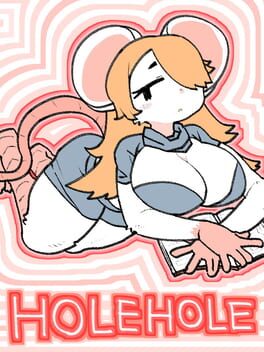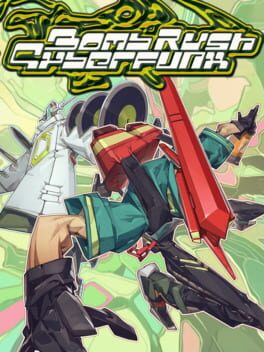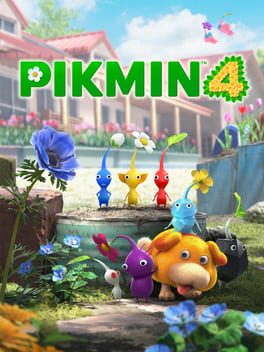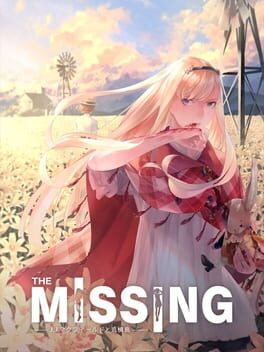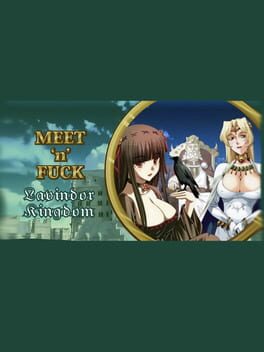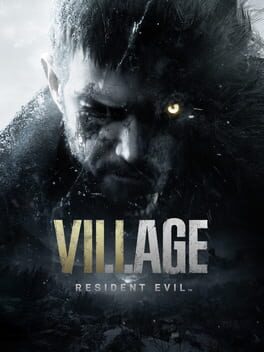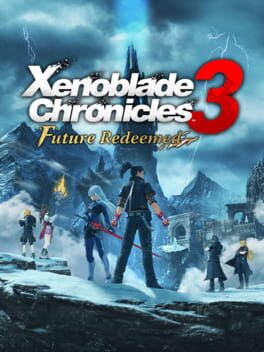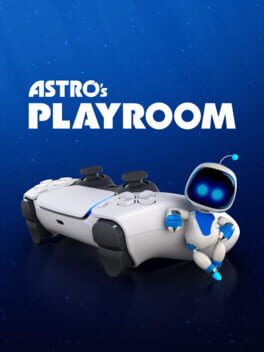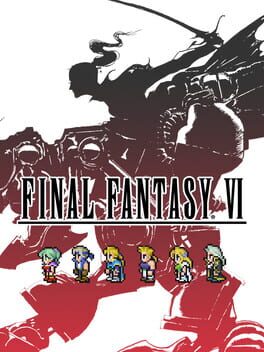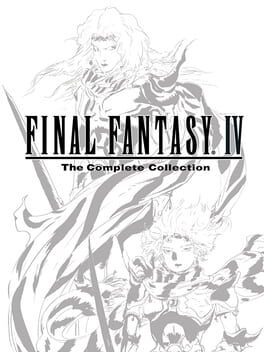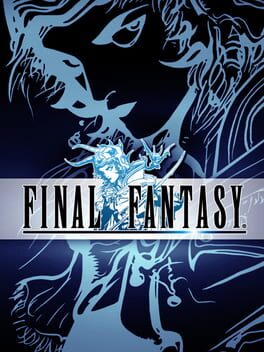CallingGestalt
2019
6 years since I first played it and I've changed so much as a person and gained new perspectives to view the game through, and yet my love for this game has only matured.
First played the original P5 when I was a 17 y/o "boy" the year it came out and got every trophy across 4 whole playthroughs. Got P5R when it came out and Covid turned Spring Break into Quarantine. Even with this being my 4th time through this game (8 total for P5 as a whole), me having seen every bit of dialogue and story, and blitzing through the game on NG++, I can see this game is something profound.
So much of the game's design, art direction, and story has this passion that has only become clearer as I've gotten older. I don't know if I'll ever have a game hit me the same way, but I know this will be a part of the media that sticks with me all my life.
First played the original P5 when I was a 17 y/o "boy" the year it came out and got every trophy across 4 whole playthroughs. Got P5R when it came out and Covid turned Spring Break into Quarantine. Even with this being my 4th time through this game (8 total for P5 as a whole), me having seen every bit of dialogue and story, and blitzing through the game on NG++, I can see this game is something profound.
So much of the game's design, art direction, and story has this passion that has only become clearer as I've gotten older. I don't know if I'll ever have a game hit me the same way, but I know this will be a part of the media that sticks with me all my life.
2022
So, it hurts a bit more the second time.
With the story and gameplay that this game has, a second playthrough where everything is sitting in the front of your mind is destined to be smoother. Items you had no thought in now aren't skipped over or stashed away, navigation and puzzles are that much easier as you've already seen the areas and solutions before, and those little things that didn't add up are staring you in the face.
Coming back to the start of the story after getting the sparse details it gives and connecting some dots around what it all means paints a different picture of what was going on... even if it wasn't exactly subtle in what it was originally setting up. It's blatant that this is a time loop story and having a full view of the mechanics and setting of the world makes everything even clearer. Which then leaves all the murky spots all that much worse when you still don't have that full a picture.
With the story and gameplay that this game has, a second playthrough where everything is sitting in the front of your mind is destined to be smoother. Items you had no thought in now aren't skipped over or stashed away, navigation and puzzles are that much easier as you've already seen the areas and solutions before, and those little things that didn't add up are staring you in the face.
Coming back to the start of the story after getting the sparse details it gives and connecting some dots around what it all means paints a different picture of what was going on... even if it wasn't exactly subtle in what it was originally setting up. It's blatant that this is a time loop story and having a full view of the mechanics and setting of the world makes everything even clearer. Which then leaves all the murky spots all that much worse when you still don't have that full a picture.
2023
2023
This is like, Prime Indie Game.
Haven't played basically any sports platforming games like Tony Hawk or Jet Set Radio at all, but I can instantly get the appeal from this game. I hadn't ever checked out those games because, tbh, they just aren't available on modern platforms of my time. And from the people being pissy about how different it is from those games, even I can tell it sets itself apart as something new and cool.
That in itself ties into the short but effective story and themes of identity. In a literal sense and in a meta way, the story is very blatantly about the concepts of personal identity vs background. There's the cyberpunk way of body modification and your place in society but also the way the game is itself a splintering from the games that made it. This isn't even getting into how it perfectly replicates the high stylization, low fidelity of 6th gen games that became a style in how itself. And it was able to say this in only like 10 hours of game without that heavy a story. Again, tbh, I wouldn't expect this sort of dense, self aware sort of writing anywhere else other than a game that couldn't mice words.
After coming off some dense AAA releases this year, there's a contrast from the nature of what this game is and gets done from being smaller scale.
Haven't played basically any sports platforming games like Tony Hawk or Jet Set Radio at all, but I can instantly get the appeal from this game. I hadn't ever checked out those games because, tbh, they just aren't available on modern platforms of my time. And from the people being pissy about how different it is from those games, even I can tell it sets itself apart as something new and cool.
That in itself ties into the short but effective story and themes of identity. In a literal sense and in a meta way, the story is very blatantly about the concepts of personal identity vs background. There's the cyberpunk way of body modification and your place in society but also the way the game is itself a splintering from the games that made it. This isn't even getting into how it perfectly replicates the high stylization, low fidelity of 6th gen games that became a style in how itself. And it was able to say this in only like 10 hours of game without that heavy a story. Again, tbh, I wouldn't expect this sort of dense, self aware sort of writing anywhere else other than a game that couldn't mice words.
After coming off some dense AAA releases this year, there's a contrast from the nature of what this game is and gets done from being smaller scale.
2023
Nintendo put a decade between Pikmin 3 and 4, and you can feel it.
With Pikmin 2, they took out the day limit to focus on the RTS exploration and combat. The thing is, I don't think those mechanics in the game are strong enough to carry it entirely, so I like Pikmin 3 more because of that. Pikmin 4 acts as a twist to P2 and fixes so much by incorporating many more facets to the game play. Having pilots to rescue, missions to complete, and challenges to perfect on top of collecting treasure makes full use of the somewhat simple systems of the series. With stuff like wild Pikmin and Flarlic and Oatchi, it feels like the game is adding a new limit to what you can do while also feeling like it's rewarding you for playing well. If you can explore and get expand your capabilities, you can get things done that you couldn't for hours otherwise.
One of the only complaints I'd have is that the controls have this stickiness to them. I can tell it's meant to be a fix for previous issues, though.
With Pikmin 2, they took out the day limit to focus on the RTS exploration and combat. The thing is, I don't think those mechanics in the game are strong enough to carry it entirely, so I like Pikmin 3 more because of that. Pikmin 4 acts as a twist to P2 and fixes so much by incorporating many more facets to the game play. Having pilots to rescue, missions to complete, and challenges to perfect on top of collecting treasure makes full use of the somewhat simple systems of the series. With stuff like wild Pikmin and Flarlic and Oatchi, it feels like the game is adding a new limit to what you can do while also feeling like it's rewarding you for playing well. If you can explore and get expand your capabilities, you can get things done that you couldn't for hours otherwise.
One of the only complaints I'd have is that the controls have this stickiness to them. I can tell it's meant to be a fix for previous issues, though.
2018
Neat game about going through it.
I'm coming to the party a bit late, so most of what I knew about this game before playing it was that it was something that was a "trans people game." Looking at it you might think that it means that it's going to be a Wholesome 100, Feelsie game about transitioning or something, but it really isn't. The game is pretty genuine about the idea of people having different struggles and the difficulty of what it takes to get through them, even having a fake out “your parents just don’t understand you” scene. It’s hard to get through whatever you’re going through (the game is pretty vague about Madeline’s problems specifically, which I think helps in sympathizing with the game’s concepts), but being with other people, wherever you can find them, helps. At the same time, you need to be willing to accept the problems you do have and not just push them down in hopes you’ll be better for it. That all said, there’s only so much I can say about the story as there’s only so much of it. The game says what it wants to say and not much more. The gameplay on the other hand has a lot more than the initial run through.
One of the strengths of indie games is that the simpler game concepts can often be explored in so many different ways without also feeling like they were drawn out too long. Basically every 45 minutes or so, you’ll have some new mechanic on top of jumping, dashing, and holding. Add on different aesthetics for each chapter, the whole game felt fresh and kept me interested the whole 7 hours it took me to go through the main campaign. With there being even more optional stages and collectables, this could be a game someone could really engross themselves into.
Overall, a pretty good game that ended up being a lot different from what I was expecting but not overwhelming. Madeline is just like me, fr, though.
I'm coming to the party a bit late, so most of what I knew about this game before playing it was that it was something that was a "trans people game." Looking at it you might think that it means that it's going to be a Wholesome 100, Feelsie game about transitioning or something, but it really isn't. The game is pretty genuine about the idea of people having different struggles and the difficulty of what it takes to get through them, even having a fake out “your parents just don’t understand you” scene. It’s hard to get through whatever you’re going through (the game is pretty vague about Madeline’s problems specifically, which I think helps in sympathizing with the game’s concepts), but being with other people, wherever you can find them, helps. At the same time, you need to be willing to accept the problems you do have and not just push them down in hopes you’ll be better for it. That all said, there’s only so much I can say about the story as there’s only so much of it. The game says what it wants to say and not much more. The gameplay on the other hand has a lot more than the initial run through.
One of the strengths of indie games is that the simpler game concepts can often be explored in so many different ways without also feeling like they were drawn out too long. Basically every 45 minutes or so, you’ll have some new mechanic on top of jumping, dashing, and holding. Add on different aesthetics for each chapter, the whole game felt fresh and kept me interested the whole 7 hours it took me to go through the main campaign. With there being even more optional stages and collectables, this could be a game someone could really engross themselves into.
Overall, a pretty good game that ended up being a lot different from what I was expecting but not overwhelming. Madeline is just like me, fr, though.
2009
There really isn't a bit here. This is a flash porn game that has more going on that it should but is also so cheap with stolen assets, compressed music and sound bites, and clashing original art along side stock images. There's not much more for me to say with this being the platform to speak or me be the speaker.
2023
Resident Evil 4 is likely the best example of what remakes should be for video games.
Basically every part of the original RE4 has been built upon with systems and direction from the series' modern games to be an amazing game that is also distinct from the original. So much of the arcade + action movie-like progression and story has been redone to play a lot of the story completely as horror, giving many areas and characters a different coat of paint that is only available in the modern day.
And the thing is, Resident Evil 4 is available on every console under the sun. So, even if this remake messed up in one way or another, it wouldn't be the only easily accessible version. But that isn't the case here. Capcom has now put out two immaculate super games, each with their own direction and style.
Basically every part of the original RE4 has been built upon with systems and direction from the series' modern games to be an amazing game that is also distinct from the original. So much of the arcade + action movie-like progression and story has been redone to play a lot of the story completely as horror, giving many areas and characters a different coat of paint that is only available in the modern day.
And the thing is, Resident Evil 4 is available on every console under the sun. So, even if this remake messed up in one way or another, it wouldn't be the only easily accessible version. But that isn't the case here. Capcom has now put out two immaculate super games, each with their own direction and style.
Resident Evil Village is a great step for survival horror that understandably got forgotten fast.
Each section of this game feels wholly unique from the other. You'll have some more traditional RE chapters of navigating areas while solving puzzles and getting keys between pure puzzle or pure action segments along with a hub area that opens up as the game goes on, letting you get special challenges and rewards for going out of your way to get them. The ability to have varied game play and game design is a strength of survival horror I'm glad to see still alive in a big AAA title.
That unique strength is somewhat of its problem at the same time. There are a lot of set pieces and flashy moments to this game, but at the same time it has the feeling of being led around a theme park when comparing it to both the traditional RE games and more modern ones like RE 4. You don't have some of the same opportunities for routing and doing multiple runs in the same way as either of these games. Having a merchant you can just run into in a safe room or the hub isn't the same as enemies starting to get harder to deal with or you getting low on ammo and having the chance to upgrade or get new weapons.
So by the end of the game I had the feeling of this being this super cool experience that I'm really glad exists but won't be going back to until it's mostly out of my memory.
Each section of this game feels wholly unique from the other. You'll have some more traditional RE chapters of navigating areas while solving puzzles and getting keys between pure puzzle or pure action segments along with a hub area that opens up as the game goes on, letting you get special challenges and rewards for going out of your way to get them. The ability to have varied game play and game design is a strength of survival horror I'm glad to see still alive in a big AAA title.
That unique strength is somewhat of its problem at the same time. There are a lot of set pieces and flashy moments to this game, but at the same time it has the feeling of being led around a theme park when comparing it to both the traditional RE games and more modern ones like RE 4. You don't have some of the same opportunities for routing and doing multiple runs in the same way as either of these games. Having a merchant you can just run into in a safe room or the hub isn't the same as enemies starting to get harder to deal with or you getting low on ammo and having the chance to upgrade or get new weapons.
So by the end of the game I had the feeling of this being this super cool experience that I'm really glad exists but won't be going back to until it's mostly out of my memory.
Having a complete, 6 part game series with an interconnected story is pretty cool, I gotta say. I wish I cared more about Xenoblade as a whole to appreciate it fully.
To me, Xenoblade 1 is kinda boring with a story that doesn't have much going on until the end, and even then, it's only so impressive. Xenoblade 2 would fare a lot better if it didn't feel busted in so many ways. And then there's 3 which feels like a whole league of its own with how its story and writing works. So when this DLC is meant to the tying together of everything, I can only care so much. I can appreciate to a degree how these characters have progressed and the special moments they have, but it isn't like I'm now seeing the conclusion of this character that I've liked for years now. I can mostly just like it from how it relates to the larger series or 3, not for the sake of Xenoblade 1 or 2. That said, the story is fine, it's a nice thematic and story point to place before 3.
With the gameplay of this, it's up there as what I've liked the best in the whole series. Having a system that makes every bit of combat, exploration, collecting, and quests lead back into the same reward makes it feel encouraging to do just that much more. If you've already gotten 2/3 enemies, why not get that third and upgrade a skill for one of your party members? The party members themselves have also been cut down to being more of a regular RPG party without much customization. While this might be bad for some people that liked building teams and all, I only felt choice paralysis with 1 & 2's systems. I also feel like this was the first time all the systems present clicked with me and I used everything instead of just slamming whatever accessory or class or gem into whatever had the biggest stats.
Xenoblade 3 and FR together as one package is the best the series has ever been. As such, I'm going to be the fan who says that the Xenoblade Chronicles series was not good until 3.
To me, Xenoblade 1 is kinda boring with a story that doesn't have much going on until the end, and even then, it's only so impressive. Xenoblade 2 would fare a lot better if it didn't feel busted in so many ways. And then there's 3 which feels like a whole league of its own with how its story and writing works. So when this DLC is meant to the tying together of everything, I can only care so much. I can appreciate to a degree how these characters have progressed and the special moments they have, but it isn't like I'm now seeing the conclusion of this character that I've liked for years now. I can mostly just like it from how it relates to the larger series or 3, not for the sake of Xenoblade 1 or 2. That said, the story is fine, it's a nice thematic and story point to place before 3.
With the gameplay of this, it's up there as what I've liked the best in the whole series. Having a system that makes every bit of combat, exploration, collecting, and quests lead back into the same reward makes it feel encouraging to do just that much more. If you've already gotten 2/3 enemies, why not get that third and upgrade a skill for one of your party members? The party members themselves have also been cut down to being more of a regular RPG party without much customization. While this might be bad for some people that liked building teams and all, I only felt choice paralysis with 1 & 2's systems. I also feel like this was the first time all the systems present clicked with me and I used everything instead of just slamming whatever accessory or class or gem into whatever had the biggest stats.
Xenoblade 3 and FR together as one package is the best the series has ever been. As such, I'm going to be the fan who says that the Xenoblade Chronicles series was not good until 3.
2020
An appreciation for the history of PlayStation, the games that made it, and the technology going forward is heart warming as an opener to a generation that I am a bit cynical going into. The demonstration of the controller technology is really cool, also. I'm sure the features will be used in a lot of games in smart ways and won't just jack up the price of controllers for basically no prospects.
2022
One of the Most Video Games of All Time.
Final Fantasy VI is the type of game that comes from the mastery of creative skills and the willingness to experiment and mess around with what’s been done before, which ends up with some mixed results.
The story and presentation are using the limit of abstraction and making it work. The story isn’t that complex, fitting with what one might think of as a generic “fighting against the evil empire” story. But the character writing and scenes are what brings a defined form to it. At first, the thumb sized sprites hopping around as a form of animation might seem outdated, but there’s something charming seeing the pixel art and animation after what came before when the story came from sprites standing or pacing around with sparse text boxes covering what events and actions were there.
My sentiments around the gameplay are still present with it being really cool while also unbalanced. Each character has their own special ability that manifests in different ways other than just having one different attack or spell pool. A lot of them bring something different to a team that links together with other party members. The spell learning system adds even more to this concept as some characters could be made into different builds. The thing is, I said “a lot,” not all. With how many party members there are in this game, there are plenty that go to the wayside just because they’re ability or stats aren’t that useful when you get them. With some party members and the nature of the spell system itself, you would need to put in a lot of work to make some characters worth using. Part of this would likely come from how the game's second half was made unexpectedly in less than a year under a lot of crunch.
That said, the work is worth putting in to get the bespoke, amazing experience all throughout the game. There is a wide amount of stories, dungeons, and characters that you could miss if you weren’t looking out for it. The idea of this even happening is unimaginable nowadays. Why this came about was likely because the developers had just enough experience and capability to create the content they did while it still was cheap to create such content in the first place. In a way, Final Fantasy VI is the last of its kind in being such an open, unique, classic RPG.
Final Fantasy VI is the type of game that comes from the mastery of creative skills and the willingness to experiment and mess around with what’s been done before, which ends up with some mixed results.
The story and presentation are using the limit of abstraction and making it work. The story isn’t that complex, fitting with what one might think of as a generic “fighting against the evil empire” story. But the character writing and scenes are what brings a defined form to it. At first, the thumb sized sprites hopping around as a form of animation might seem outdated, but there’s something charming seeing the pixel art and animation after what came before when the story came from sprites standing or pacing around with sparse text boxes covering what events and actions were there.
My sentiments around the gameplay are still present with it being really cool while also unbalanced. Each character has their own special ability that manifests in different ways other than just having one different attack or spell pool. A lot of them bring something different to a team that links together with other party members. The spell learning system adds even more to this concept as some characters could be made into different builds. The thing is, I said “a lot,” not all. With how many party members there are in this game, there are plenty that go to the wayside just because they’re ability or stats aren’t that useful when you get them. With some party members and the nature of the spell system itself, you would need to put in a lot of work to make some characters worth using. Part of this would likely come from how the game's second half was made unexpectedly in less than a year under a lot of crunch.
That said, the work is worth putting in to get the bespoke, amazing experience all throughout the game. There is a wide amount of stories, dungeons, and characters that you could miss if you weren’t looking out for it. The idea of this even happening is unimaginable nowadays. Why this came about was likely because the developers had just enough experience and capability to create the content they did while it still was cheap to create such content in the first place. In a way, Final Fantasy VI is the last of its kind in being such an open, unique, classic RPG.
As the first step up in new capabilities of Role Playing Games, this is charming until it isn't.
A quality of Final Fantasy IV that shines throughout the game is the sense of boundaries being broken. Bosses could have multiple sprites, dungeons could have layers to hide secrets, party composition could change, characters could each have their own abilities that brought something new to a battle, even sprites could be moved around to elicit a form of acting. All throughout the game, there are so many qualities that might seem simple today but are so clearly amazing advancements for the time it would have been released.
The story isn't too special. There are more character "deaths" then there are interesting plot developments, but the mere idea that these dots on a screen were characters with a history that had motivations and could develop would have been amazing to see. That said, there still isn't that much that's going on. The events and plot are basically cyclical until the end when things just kinda work out. As you might expect, this gets grating after a while, and by the end, the reveals would seem cool if they had much of anything behind them.
The game ends up sharing a similar sentiment. It's really awesome that these characters all have their own special ability, and each part of the game ends up feeling just a bit different from the last because of how your party composition ends up. Seeing these classic jobs be a thing in universe attached to their own character is neat. Even having the main character change his job completely is cool until you're at the end game and your party hasn't changed or developed much at all past their basic roles. Your main character gets the ability to cast spells but stops learning after 5 so you're at the final boss with a status effect healer as the best thing he can offer. At this point also, the game's only way of challenging you is to use attacks that hit for most of your HP or outright kill party members.
Despite this, the game is mostly fine. It being the first SNES Final Fantasy speaks for its quality. There is a roughness around the edges but also a lot of cool concepts that needed to be built upon, it's the middle ground between the simplicity of FF1 and the mastery of FF6.
A quality of Final Fantasy IV that shines throughout the game is the sense of boundaries being broken. Bosses could have multiple sprites, dungeons could have layers to hide secrets, party composition could change, characters could each have their own abilities that brought something new to a battle, even sprites could be moved around to elicit a form of acting. All throughout the game, there are so many qualities that might seem simple today but are so clearly amazing advancements for the time it would have been released.
The story isn't too special. There are more character "deaths" then there are interesting plot developments, but the mere idea that these dots on a screen were characters with a history that had motivations and could develop would have been amazing to see. That said, there still isn't that much that's going on. The events and plot are basically cyclical until the end when things just kinda work out. As you might expect, this gets grating after a while, and by the end, the reveals would seem cool if they had much of anything behind them.
The game ends up sharing a similar sentiment. It's really awesome that these characters all have their own special ability, and each part of the game ends up feeling just a bit different from the last because of how your party composition ends up. Seeing these classic jobs be a thing in universe attached to their own character is neat. Even having the main character change his job completely is cool until you're at the end game and your party hasn't changed or developed much at all past their basic roles. Your main character gets the ability to cast spells but stops learning after 5 so you're at the final boss with a status effect healer as the best thing he can offer. At this point also, the game's only way of challenging you is to use attacks that hit for most of your HP or outright kill party members.
Despite this, the game is mostly fine. It being the first SNES Final Fantasy speaks for its quality. There is a roughness around the edges but also a lot of cool concepts that needed to be built upon, it's the middle ground between the simplicity of FF1 and the mastery of FF6.
RPG Video Game RPG.
As basic as it gets, yet still pretty charming. The story is paper thin, mechanics seem pretty basic but leave some room for customization around what party you start with. I had a guide and maps open to where I had to go, and I'm sure I wouldn't have gotten far if not for that. Surprisingly, this still gave me the feeling of when a good RPG lets me steam roll the later parts of the game from being just so strong while still having a final boss that had me using everything I had.
As basic as it gets, yet still pretty charming. The story is paper thin, mechanics seem pretty basic but leave some room for customization around what party you start with. I had a guide and maps open to where I had to go, and I'm sure I wouldn't have gotten far if not for that. Surprisingly, this still gave me the feeling of when a good RPG lets me steam roll the later parts of the game from being just so strong while still having a final boss that had me using everything I had.


